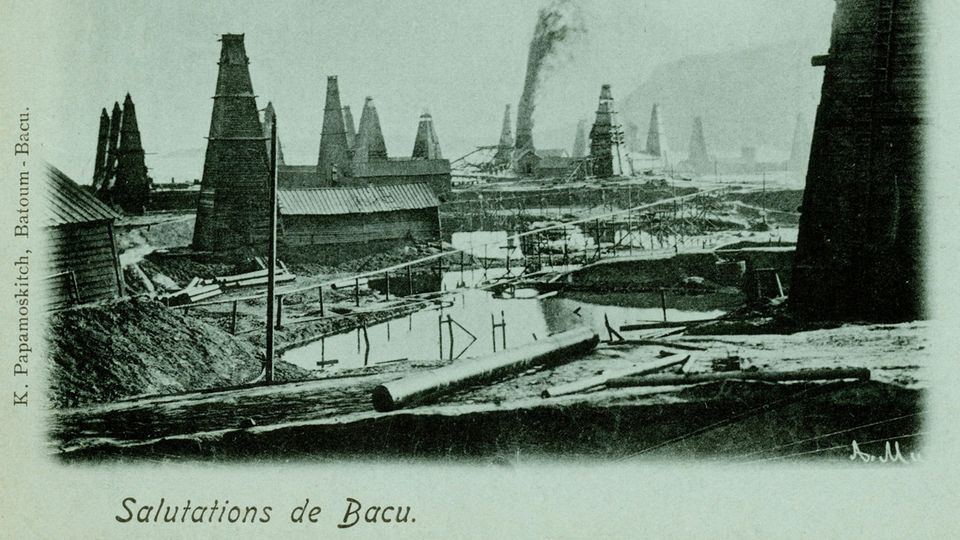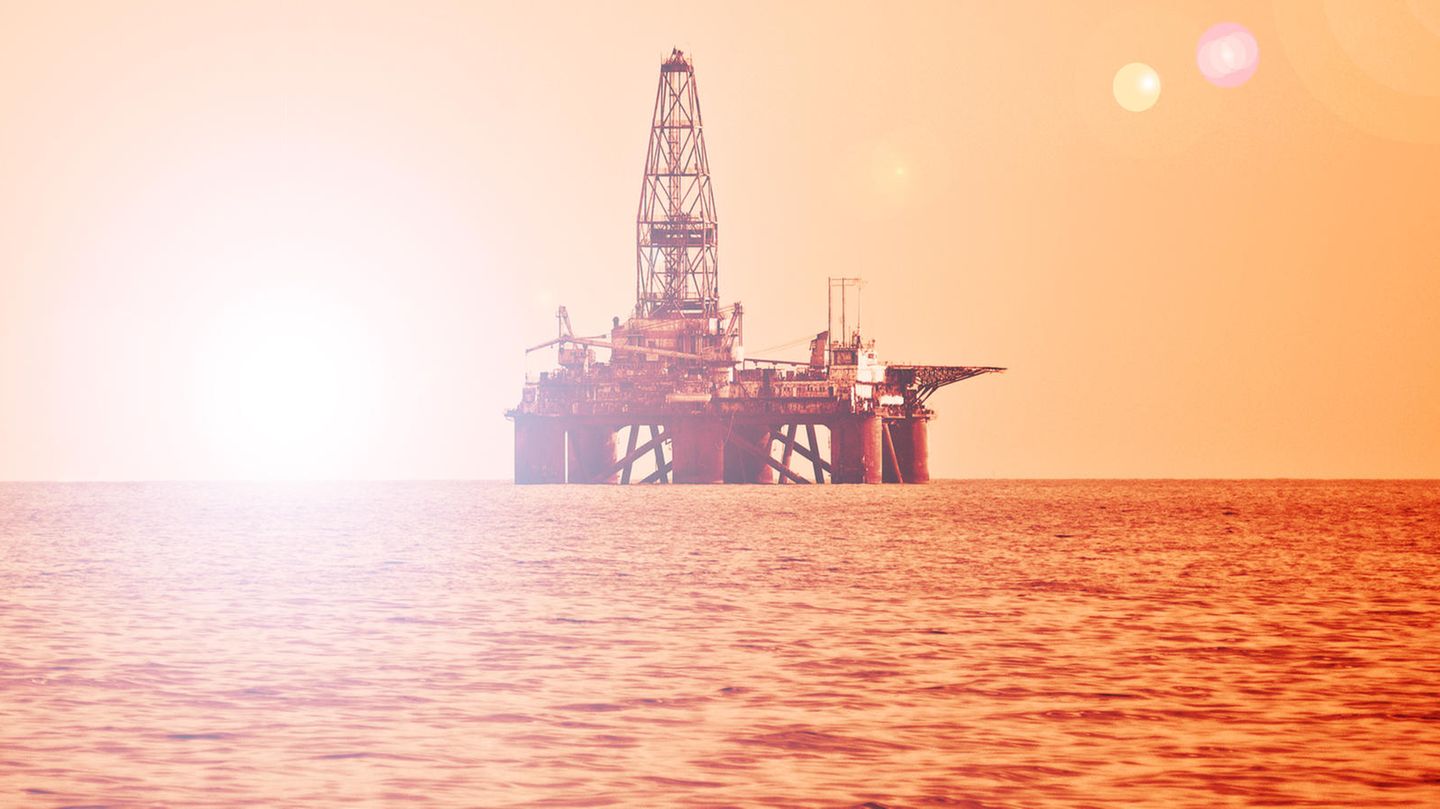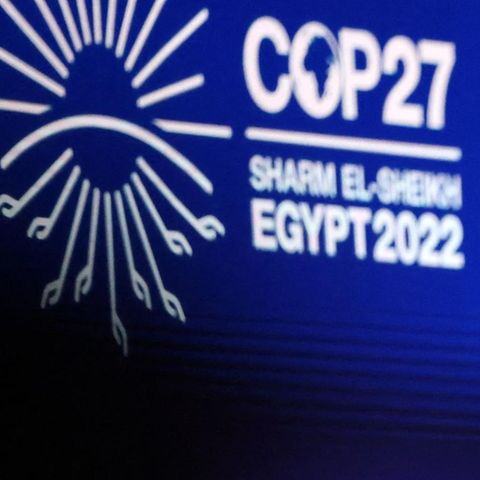COP29 in Azerbaijan
… and every year the autocrat in an oil coat greets you
Copy the current link
Azerbaijan is once again inviting fossil advocates to the COP climate summit. The country owes its prosperity to oil and gas. So you can’t be serious about the climate there, can you?
It is a truth universally acknowledged that the world must move away from oil and gas if it is to save itself. Scientists and activists have been preaching this for years. At the climate conference in Dubai last year, the international community decided on exactly that: phasing out the fossil fuel age. During the negotiations in Baku, the delegates want to build on the decisions made at the time. But can it work well?
Azerbaijan is the third autocratic host in a row – another oil state that values its fossil fuel interests more than the well-being of the planet and humanity, right? “We are on the way to ruin,” Mukhtar Babayev said in his opening speech. Climate change is “already here”, it is “not a future problem”.
Nevertheless, observers and activists fear that Azerbaijan is not taking climate protection very seriously.
Azerbaijan wants to continue its fossil history
The petrostate maintains a fossil history that goes back almost two hundred years. Oil, and since 1999 gas, have brought new prosperity to the country in the South Caucasus, as well as to other states in the neighboring Gulf region. Azerbaijan began producing oil in the 1840s, and the world’s first oil refinery was built there a decade later. At the turn of the century, almost every second barrel of black gold in the world came from Azerbaijan.

Today, oil and gas exports account for about 90 percent of Azerbaijan’s exports and 60 percent of the state budget. At the same time, a green breeze is blowing through the petrostate. In 2021, the government passed a law on the use of renewable energy sources that is intended to promote solar and wind farms with the help of foreign investors. Overall, the government is at best approaching its green projects half-heartedly. If Europe wants to be climate neutral by 2050, emissions in Azerbaijan should have fallen by 40 percent. Critics also claim that Azerbaijan only wants to use renewables to provide more oil and gas for exports.
It is estimated that fossil reserves under the petrostate will dry up in the next 25 years. Azerbaijan would like to convert the black gold into cash by then. Almost three weeks before the climate conference in Baku, reports became public that the government and the state-owned company Socar want to increase gas and oil production. For example, 400 billion cubic meters of gas is expected to be produced in the Caspian Sea in the next ten years. For comparison: in 2021, the country produced a total of .
Before the climate conference, Azerbaijan is being viewed critically, including by politicians from Europe. It is precisely the European Union that is further boosting Azerbaijan’s fossil fuel business: Due to the Russian war of aggression against Ukraine, the state in the South Caucasus became the most important energy supplier for Europe. Gas deliveries are to be doubled further by 2027.
It’s hard for everyone to break away from fossils
In a declaration, Azerbaijan excluded the central issues of the upcoming summit and replaced them with its own demands. In doing so, the government in Baku could distract from the actual issues and goals of the climate summit, reduce the pressure and hinder an agreement on the controversial climate financing. The organizations Transparency International and the Data Collective for Combating Corruption (ACDC) also warn in a new report about the influence of fossil energy companies. It says corruption and the “autocratic government” could harm the negotiations. The organizations fear that COP29 could be misused by fossil lobbyists for new deals.
The experiences of the last climate summit speak for this: Although they agreed to the gradual phase-out of fossil fuels, the hosts cemented their oil interests in order to significantly increase production in the coming years. The so-called COP Troika, consisting of the United Arab Emirates, Azerbaijan and the future host Brazil, was actually formed to intensify cooperation in global climate negotiations and limit global warming to 1.5 degrees. However, one pointed out that the COP Troika wants to increase its support for fossil fuels by 36 percent (Brazil), 34 percent (UAE) and 14 percent (Azerbaijan) by 2035. This would mean violating the COP28 decision.
A great moment like the climate policy experienced in Kyoto in 1997 or in Paris in 2015 is hardly to be expected. Pessimists speak of a greenwashing event at which Azerbaijan can demonstrate its organizational talent and maintain fossil contacts with other states.
COP29 starts with a failed climate target
Weeks before the climate summit in Baku, the momentum in Paris has evaporated. The global community is well on its way to breaking the 1.5 degree target by the end of the year. The Paris climate target has therefore failed. There is hardly any sign of sustainability today. But this is probably not just due to oil and gas states, but also to industrialized states in the Global North, which on the one hand want to push forward the green transformation, but remain loyal to fossil energy sources through trade relationships with the South Caucasus and the Gulf states.
Source: Stern
I have been working in the news industry for over 6 years, first as a reporter and now as an editor. I have covered politics extensively, and my work has appeared in major newspapers and online news outlets around the world. In addition to my writing, I also contribute regularly to 24 Hours World.






